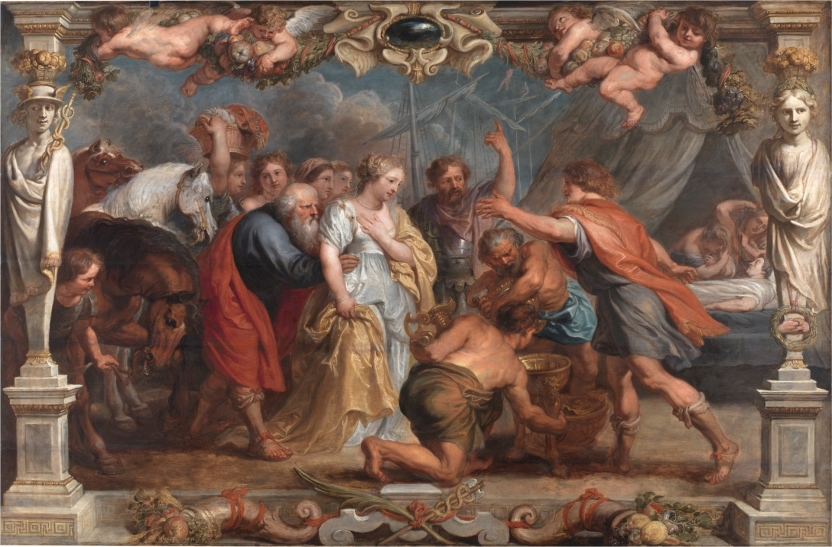The Iliad and the Odyssey are the culmination of several centuries of history that Homer (8th century BC) shapes with ancient memories and recent experiences. Two great works “whose characters continue to embody ideas about the human being, the soul, life and death,” says Jacqueline de Romilly in her book Walls of Troy, Beaches of Ithaca. Homer and the origin of the epic (Siruela, 2022), in which she analyzes various questions of this epic world, embellished by the poet. Her characters are heroes and kings, they are not common people. They are heroes, but that does not mean they stop being simple mortals, even when they are children of gods or goddesses. Homer elevates them to the peak of the qualities that a human being can reach (cf. p. 119).
Zeus, Apollo, Hera, Athena appear on the scene, sometimes favoring the Trojans, other times the Achaeans. A gust of wind caused by Athena deflects Hector’s spear and saves Achilles, whose armor was made by Hephaestus. The presence of dust in the air, raised by Zeus, protects Hector in battle. Aphrodite protects the Trojan Aeneas. They have their favorites. An appearance where “the supernatural and the natural, the human and the divine, come closer, combine, overlap” (p. 110).
Warrior heroism, but also human drama. The farewell of Hector and Andromache before the battle with Achilles manifests love and pain in both characters. “An intimate scene, notes the author, full of tenderness, but in which fear and the quasi-certainty of death and defeat discreetly shine through” (p. 60). Hector must face Achilles and, even when he is aware that the hour of death has arrived, he exclaims: “May he at least not perish without effort and without glory, but after a feat whose fame will reach future men! ”. Equally, emotionally charged is the meeting between Achilles and Priam, Hector’s father. Both mourn the death of their friend, one; the death of the son, the other. Achilles ends up taking pity on the old father and agrees to hand over Hector’s corpse to be mourned in the Trojan ranks.
Brave heroes, never cowards, and also human, even if they have the presence of the gods. In the Odyssey, Ulysses refuses to share the life of the immortal Calypso and prefers to return to his mortal life with his mortal wife: “Do not take this the wrong way, Augustan goddess” (V, 215) (p. 75). The love of the heart is more powerful than the soul’s desire for immortality. Ulysses, despite his journey, wants to reach Ithaca, his town, and be with Helen and Telemachus, whom he left as a child. Twenty long years between war and return. Many adventures and obstacles, Poseidon against him, Athena in his favor. It is not an easy return, home calls, and it is worth the effort.
Two masterpieces of classical literature that have survived throughout the centuries. A very great literary value and, at the same time, a reading of the human condition that continues to give clues to many readers to understand the various folds of human biography in what it has of excellence and, also, of fragility. Both are a mine from which teachings continue to be extracted where, history, fiction, poetry; drama, tragedy; Joy, pain, fury, deceit, pity, courage intertwine to compose a tapestry of the human adventure.










